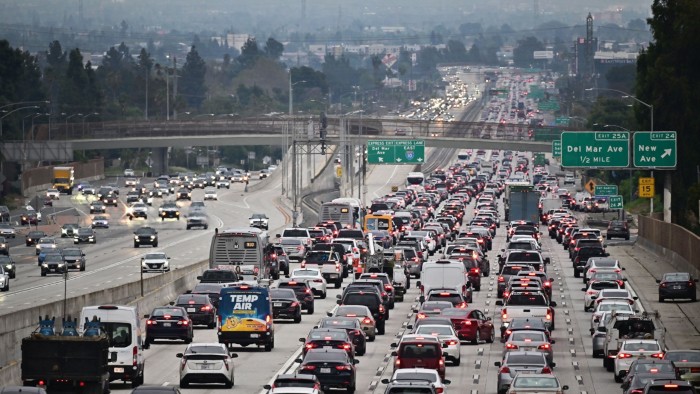Unlock the White House Watch newsletter for free
Your guide to what Trump’s second term means for Washington, business and the world
The US Senate has voted to block California’s ban on new petrol-powered cars by 2035, dealing a blow to the state’s ambitious plan to push the auto industry to sell more electric vehicles.
The upper chamber of Congress passed the measure on Thursday in a 51-44 vote, sending the bill to President Donald Trump, who is expected to sign it.
The resolution revokes a waiver that former president Joe Biden’s Environmental Protection Agency gave to California to let the state implement extremely strict emissions standards and require all new vehicle sales be electric by 2035.
The waiver was opposed by the auto industry, petrol producers and Republicans including Trump.
The vehicle standards are critical to California reaching its climate and pollution goals. After years of strong growth, sales of zero-emission cars have flatlined in the state over the past two years.
Congress gave California the ability to set its own environmental policies decades ago. The state created an “air resources board” in 1967 to fight smog, and its huge market meant that automakers had to adapt to its regulations.
Eleven other US states followed California’s emissions and fuel-efficiency rules, which were the first of their kind in the nation.
In 2022, California brought in rules to phase out gasoline and diesel vehicles. The plan requires carmakers to sell 35 per cent low-emission models by next year, stepping up to 68 per cent in 2030 and a full ban on new petrol cars in 2035 — with stiff fines for non-compliance.
The auto industry had pushed for the federal government to block the policy. The Alliance for Automotive Innovation, a trade group for car and battery makers, said the legislation passed by the Senate was crucial for consumer choice and to keep the American auto industry competitive.
“The fact is these EV sales mandates were never achievable,” said chief executive John Bozzella. “There’s a significant gap between the marketplace and these EV sales requirements.”
Bozzella added that because carmakers were not ready to meet the new standards, they would have had to spend money buying credits from electric-vehicle makers such as Tesla rather than investing in their own shift to low-emission technology.
About 25 per cent of new cars registered in California last year were zero emission, according to data released this year by the California Energy Commission. That was roughly flat from 2023.
